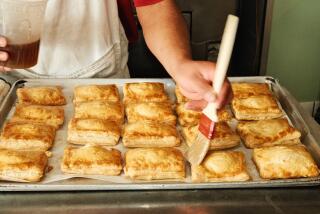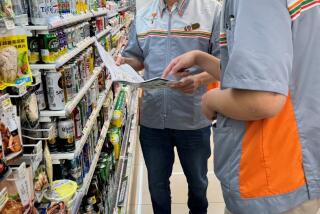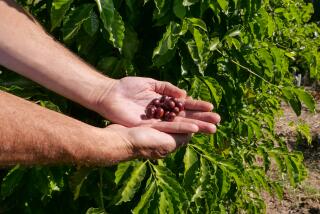‘Like Bobageddon’: Boba tea aficionados are freaking out as shortage looms
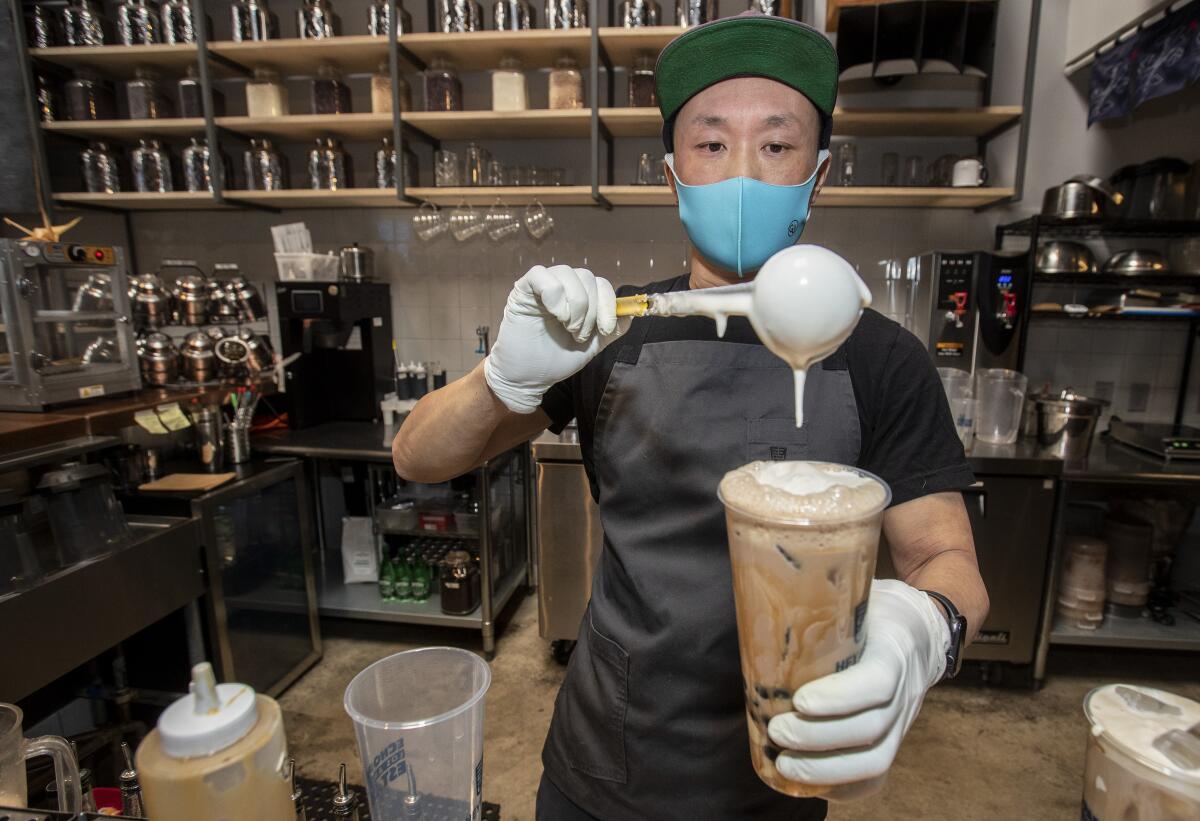
Abby Boeh walked into an Echo Park cafe and ordered her usual: an iced coffee and tea blend with cream and boba.
She had politely declined a manager’s suggestion to try seasonal specials like chai tea with fresh taro.
For Boeh, the boba — black tapioca balls sucked through a giant straw — are a must, delightfully chewy and so filling that they often serve as her lunch.
Yet she may soon have to do without them. A boba shortage is about to hit the nation, throwing aficionados like Boeh into a panic.
“I don’t even want to think about it,” said Boeh, 32, who visits the cafe, Hey Hey, on breaks from her job as an optician.
From a few scattered shops in the San Gabriel Valley in the early 2000s, boba tea has exploded into a nationwide mainstay.
For many fans, grabbing boba is as routine as grabbing a latte. Invented in Taiwan, boba was once known mostly to Asian Americans. Now, boba drinkers are as likely to be white, Latino or Black as Asian. Boba shops are ubiquitous in college towns from Oregon to Nebraska to North Carolina.
That means the pain from the impending shortage will be felt across a wide swath of the United States.
Christopher Kwok, Hey Hey‘s owner, has enough boba to last about two months. He does not know when his next shipment will arrive.
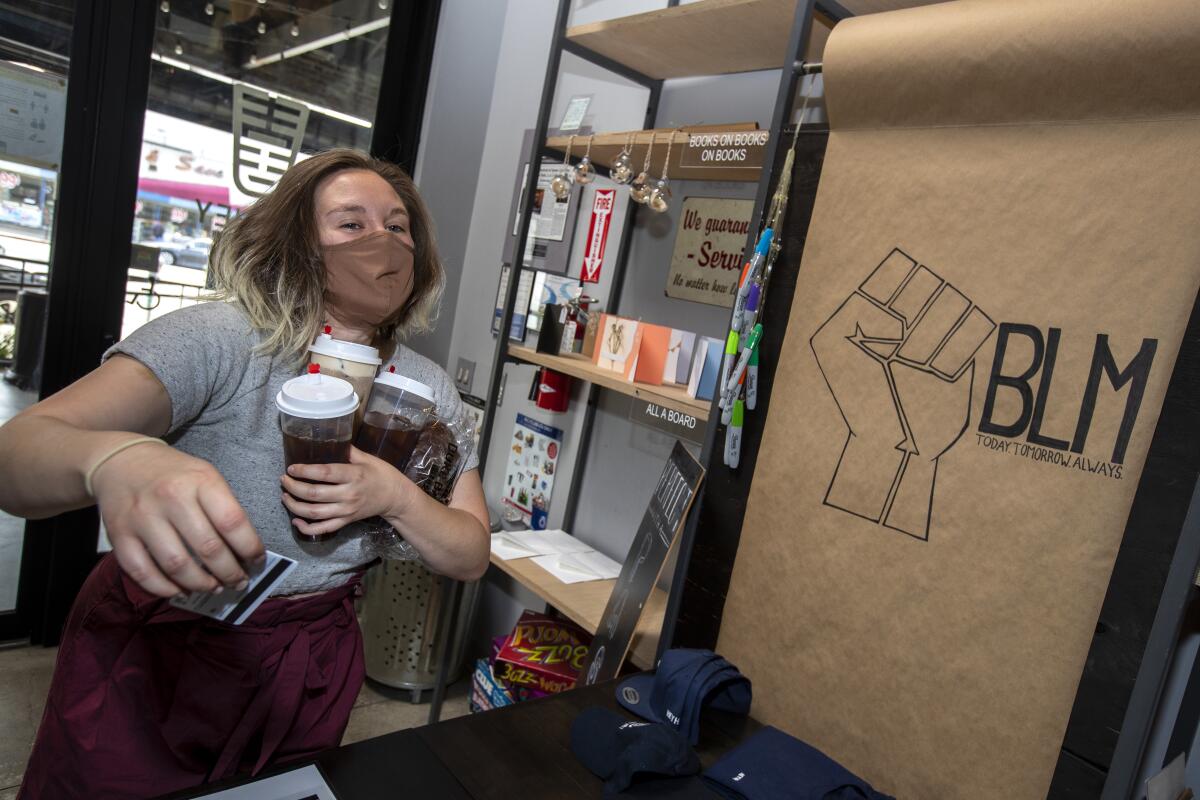
Like many cafes, Hey Hey is dependent on boba from Taiwan, purchased through a local wholesaler.
With homebound Americans clicking “buy now” on office supplies, exercise equipment, gardening tools and more, the ports of Los Angeles and Long Beach are experiencing unprecedented backups during the COVID-19 pandemic.
In March, dockworkers in Long Beach moved 62% more shipping containers than the same month last year.
Add to that a drought in Taiwan that has forced boba factories to close several days a week, and the flow of tapioca balls to U.S. shores is trickling to a halt.
Jocelyn and Justine Wong, a.k.a. the Hangry Diary sisters show us where to eat the best Taiwanese popcorn fried chicken and boba in the SGV.
At Hey Hey, the boba arrives raw and resembling small brown pellets. The cooking process, which turns the boba black, varies from store to store but usually involves boiling with flavorings such as honey, brown sugar, fresh fruits and syrups.
Kwok, 35, is already running low on the jumbo straws that customers use to inhale the boba.
“Around this time, there are already issues regularly with people stocking up for the summer, but now with COVID-19 and shipping problems, we might have to change some things,” he said.
Kwok said that as his supply dwindles, he’ll probably swap boba for minty herbal jellies and puddings, while featuring more drinks with fruit.
Elton Keung, owner of Labobatory in San Gabriel and Pasadena, expects to run out of boba within two months.
“My normal supplier is out, so I’ve been looking everywhere,” said Keung, 32. “Our customers are used to a certain type of boba, and it’s going to be different for a while.”
Keung said half the drinks he sells contain boba.
“I want to say our customers have an understanding and value our product where they don’t need boba if I can’t provide it,” he said. “But I don’t know. It’s a scary time, kind of like Bobageddon.”
The supply chain problems extend beyond tapioca balls to tea-making equipment.
At the Boba Supplier, a small, San Gabriel-based distributor, owner Herrick Lam placed an order for eight tea-pressing machines in mid-March.
Meet Yiying Lu, the designer who created the boba, dumpling, chopsticks, fortune cookie and takeout box emojis.
The machines were supposed to arrive Thursday but have been delayed at least a month.
“Once your order gets on the boat, it takes 15 days to get to Long Beach from Taiwan,” Lam said. “But they have all these products in Taiwan sitting at the port waiting to get loaded because there are no containers available.”
For entrepreneurs who make their own boba, raw materials are similarly affected by the shipping backups.
In a video recorded at their Hayward boba factory, the owners of US Boba Co. explained the causes of the boba shortage and asked customers for understanding.
David Fan, who is also chief executive of Fanale Drinks, said tapioca starch is made from the cassava plant and is primarily imported from Thailand and the Pacific.
In the meantime, US Boba is trying to transport the starch by means other than ships, as well as trying to find suppliers in the U.S., where cassava is rarely grown.
“If you see them run out of boba, don’t get mad. It’s not their fault,” said Bin Chen of US Boba Co. and Boba Guys. “Maybe now is really the time to try different toppings, whether it’s aloe jelly, pudding, grass jelly or even our house-made almond jelly here at Boba Guys.”
For One Zo, which makes boba in-house at its Monterey Park and Pasadena cafes, it helps to have a direct line to Taiwan, where the company is headquartered.
Chief Executive Ron Tang said he does not expect a shortage of tapioca starch.
“There’s nothing better than freshly made products with no preservatives,” Tang said. “It just so happens the way we make our boba is going to give us an advantage.”
John Chan, owner of Little Tokyo’s Sunright Tea Studio, said he is well situated because he is part of a chain of 12 shops that can buy in bulk, directly from the factory instead of a wholesaler.
The chain has a three- to four-month supply of boba that should last until the next scheduled shipment in July.
“The seasonal shortage of boba is actually natural because stores buy more,” Chan said of the summer demand. “What’s different this time on top of the shipping is the production shortage.”
Even with some cafes saying they will weather the shortage, boba fanatics are bracing themselves to do without.
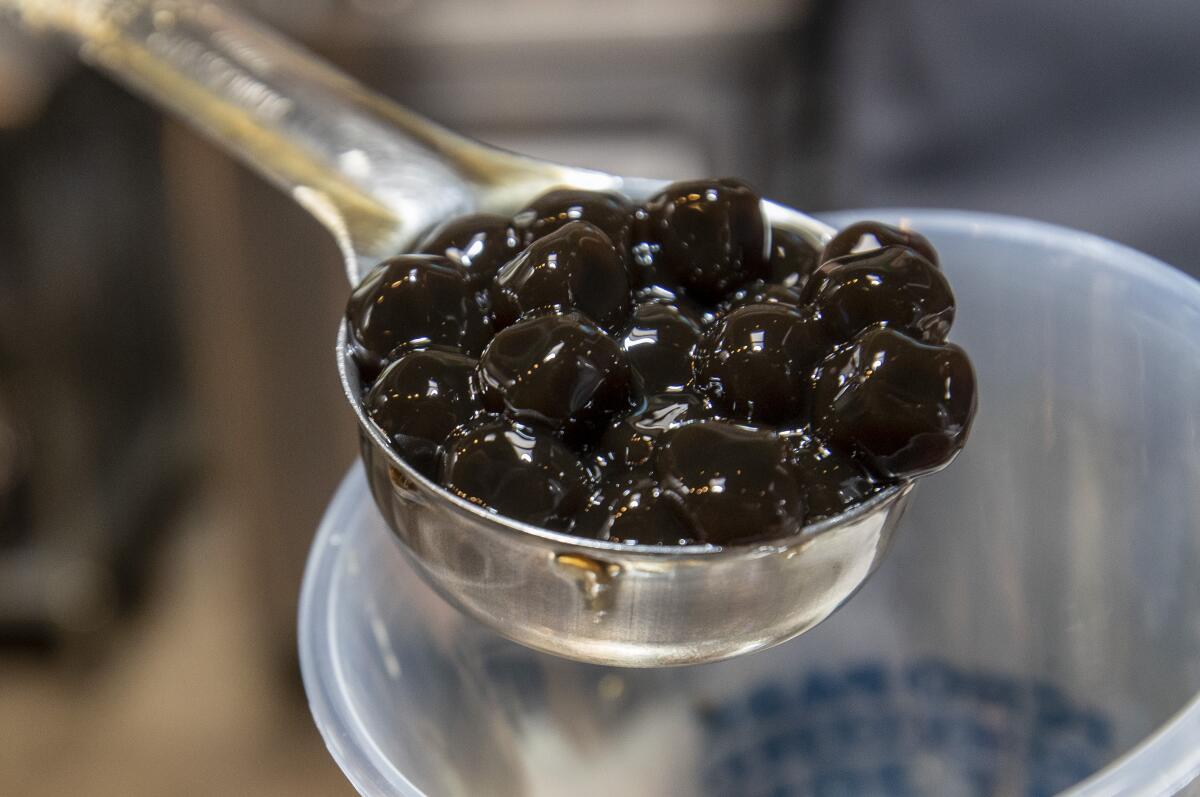
Boba is so important to Sirose Loyola that she gave it up for Lent.
Now, she is looking at another stretch without a drink that has sustained her through the pandemic.
When she was growing up in the South Bay, young Asian Americans often met up with friends at boba shops, said Loyola, who is Filipina.
Chewing on the boba keeps her active and engaged, whether sitting by herself or listening to friends talking, she said.
She has a boba drink once a week, usually at 7 Leaves and Cafe Pruvia in Gardena. She has also ventured to Los Angeles and the San Gabriel Valley to sample the boba there.
“It would really be sad not to have boba, because it’s part of my routine,” said Loyola, a 33-year-old graphic designer who lives in Torrance. “It’s calming, and it’s relaxing, and you need that during these times.”
At Ten Ren’s Tea Time in Alhambra on Thursday, Marc Hernandez ordered a milk tea with boba.
The 33-year-old El Monte resident has boba about once a week.
His wife “is going to freak” about the pending shortage, he said. And he is already worrying.
“I have to have boba, especially during the pandemic,” he said. “It’s my one comfort.”
More to Read
Start your day right
Sign up for Essential California for news, features and recommendations from the L.A. Times and beyond in your inbox six days a week.
You may occasionally receive promotional content from the Los Angeles Times.
